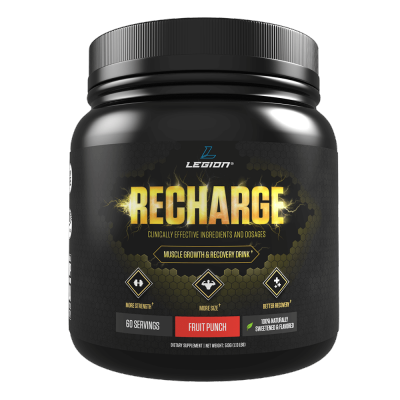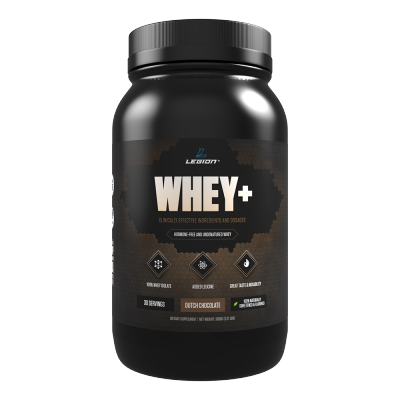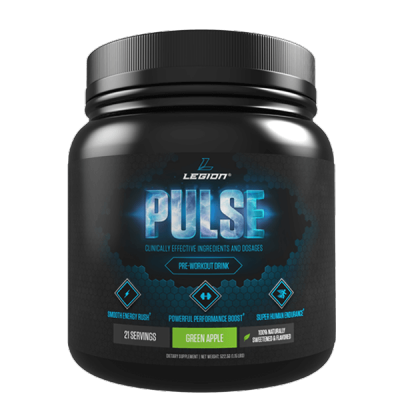There’s no way around it.
If you want to gain weight (and muscle) efficiently, you’re going to need to be able to eat a lot of food.
Not as much as some “gurus” would have you believe (which we’ll talk more about soon), but a lot nonetheless.
To some people, that sounds glorious.
They finally get to indulge their outsized appetites.
To many others, though, that sounds daunting. Harrowing, even.
They’ve never been one for feasting and only have to peck at food to feel full.
If that’s you, this article is going to help.
In it, we’re going to cover how to know how much food you actually need to eat to gain weight and how to comfortably (and healthily) pack it all in.
Let’s get to it.
Table of Contents
Want to listen to more stuff like this? Check out my podcast!
How Much Food to Gain Weight?
You’ve probably heard that big muscles require a big appetite.
You’ve probably also heard that “bulking” is unnecessary and even counter-productive because of excessive fat gain.
Well, there is truth in both of these statements.
If you follow a cookie-cutter bodybuilding bulking program, you will probably gain a lot more fat than muscle.
That said, if you want to maximize muscle growth, you need to eat a rather large amount of food (which requires a robust appetite).
The reason for this is simple:
Muscle growth is strongly affected by how much food you eat.
Not just protein (which matters too, of course)…but food (calories).
The bottom line is if you don’t eat enough calories every day, you’re going to always struggle with gaining muscle.
Now, the idea that you have to “eat big to get big” has been kicking around the bodybuilding space for decades.
What isn’t generally known, though, is how this works physiologically (and how to do it without piling on body fat).
The reason caloric intake affects muscle growth has to do with something known as energy balance.
Energy balance is the relationship between how much energy you feed your body every day and how much it burns.
(These quantities are measured in calories.)
If you feed your body less energy than it burns, you’ve created a “negative energy balance” or “calorie deficit.”
This is necessary for losing fat but comes with several downsides:
- It decreases your body’s ability to synthesize muscle proteins.
That is, when in a calorie deficit, your body can’t build muscle tissue as efficiently as when you’re not in a deficit.
This further decreases protein synthesis and increases protein degradation rates.
- It impairs workout performance.
When you’re in a calorie deficit, you can expect a reduction in strength, muscle endurance, and overall energy levels.
This, in turn, impairs progression in your workouts, which impairs muscle growth.
What do these three things tell us about diet and muscle gain, then?
It’s simple:
If you want to build muscle effectively, you need to make sure you’re not in a calorie deficit.
Instead, you want to do the opposite: feed your body slightly more energy than its needs.
This is known as placing it in a “positive energy balance” or “calorie surplus.”
This ensures your body can build muscle unhindered and results in fat gain as well (as a portion of the energy surplus is stored as body fat.)
(It’s worth noting that some people–newbies, mainly–can build muscle and lose fat at the same time, but they’re a small minority. The rest of us will need to heed the advice in this article.)
Where this can go astray, however, is in the size of the calorie surplus.
Many people mistakenly assume that a large surplus helps you build muscle faster than a slight one.
Well, this isn’t true.
It only causes you to gain more fat (which in turn can slow down muscle gain).
The reason for this is a calorie surplus doesn’t have muscle-building properties per se. It’s simply a way to ensure you’re not in a calorie deficit.
Think of it like this:
A calorie surplus doesn’t press down on the gas–it lets off the brake.
Now, one of way of achieving a calorie surplus is throwing down many thousands of calories every day.
If you eat like a Clydesdale, you will gain weight.
You don’t want to just gain weight, though. You want to gain muscle.
And that’s why you want to maintain a slight calorie surplus when bulking.
This allows you to build muscle efficiently without gaining large amounts of fat.
Specifically, I recommend that you maintain a 5 to 10% calorie surplus when bulking.
That is, eat around 105 to 110% of your total daily energy expenditure (and balance your macros properly) and you’ll be in the “sweet spot” for gaining “lean muscle.”
You know you have to right when you’re gaining 0.5 to 1 pound per week (and about half that for women).
And in terms of the ratio muscle to fat gain, 1:1 seems to be pretty standard (for every 1 pound of muscle gain, 1 pound of fat is gained too).
If you’re gaining more fat than muscle, you’re probably eating more than you should (whether you realize it or not). And if you’re gaining more muscle than fat, you probably have good genetics.


What If You’re Still Not Gaining Weight?
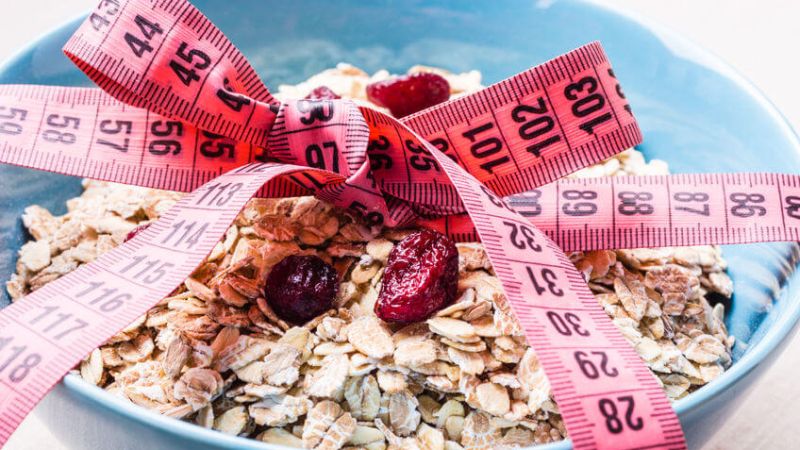
Some people will follow my advice above and still fail to gain weight.
They may gain strength but the scale just won’t budge.
Well, assuming they’re following an effective workout program and recovering adequately from their training, the solution is simple:
Eat more.
Some people’s bodies just have faster metabolisms and much higher caloric needs than others’.
You learn this by trial and error.
Specifically, here’s how you do it right:
1. Keep your protein at 1 gram per pound of body weight.
There’s no need to eat more than this.
2. Increase your daily calorie intake by 100 to 150 calories by increasing carbohydrate intake.
That is, add 25 to 35 grams of carbs to your daily intake.
3. If, after 7 to 10 days, your weight is still the same, repeat #2.
Increase daily carb intake repeatedly until you’re gaining weight at the desired rate.
4. If you’re eating upward of 3 grams of carb per pound of body weight and still aren’t gaining weight, start increasing protein and/or fat intake.
There’s a point where eating more carbs becomes unfeasible (and potentially unhealthy).
Most people like to start with increasing protein intake before fat, but this too can become too burdensome once you reach an intake of about 1.5 grams per pound of body weight.
It’s really that simple.
5 Ways to Eat More Food to Gain Weight
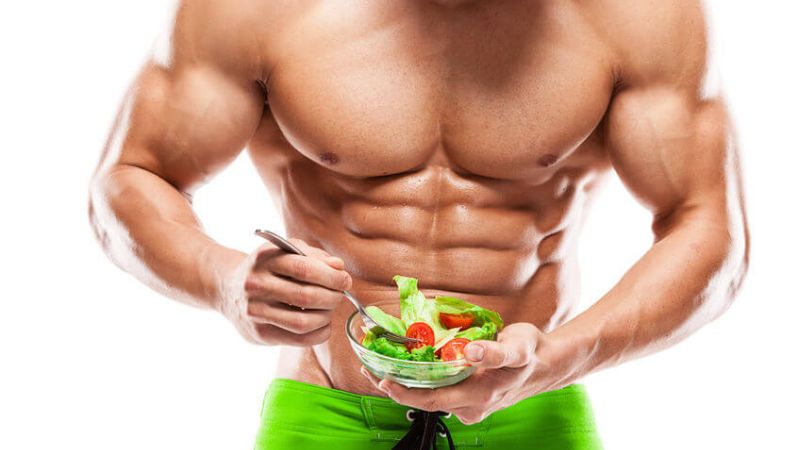
You now know how to determine how much you need to eat to gain weight.
Chances are that’s not why you came to this article, though.
You’re probably here because you physically struggle to eat enough food.
Well, in this section of the article, I’m going to share with you 5 simple tips for comfortably eating more food.
That said, realize that when you keep your body in a calorie surplus, it’s natural to feel like you’re overeating.
You are.
And when you’re overeating, it’s also natural to find less desire for and delight in food.
You see, your body doesn’t want to gain or lose weight. It wants to balance energy intake and output to remain the same, and it has various physiological levers it can pull to accomplish this.
This is why people that maintain a weight by eating intuitively (eating when they’re hungry and until they’re satisfied) often have trouble gaining (and holding onto) weight.
They’re just not used to overriding their well-functioning appetite and eating according to a plan as opposed to a perception.
Well, just know that this is something you’re going to have to battle with.
Everyone does.
The following suggestions will help you win that fight.
1. Increase Meal Frequency
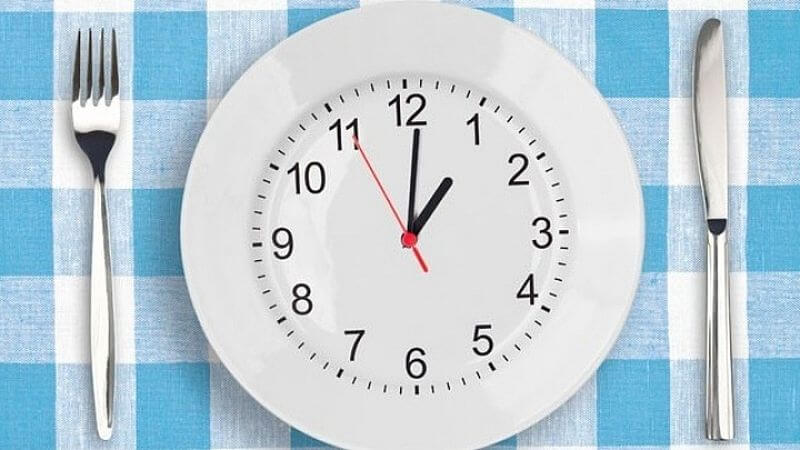
Eating more meals every day doesn’t help you burn more fat, but it can help tremendously with eating more calories.
Many people I speak with that have trouble eating enough food eat just 2 to 3 larger meals per day.
Many also skip breakfast.
Well, an easy way to increase their food intake is to have them eat a larger number of (smaller) meals every day.
For example, some people find that eating five 500-calorie meals per day (2,500 calories) is more enjoyable than three 700-calorie meals (2,100 calories).
We also often add snacks in between larger meals and a pre-sleep meal as well.
In some cases, people have started waking up earlier to eat a “pre-breakfast” meal and thus get in more food by the end of the day.
2. Limit Your Intake of Low-Calorie Foods
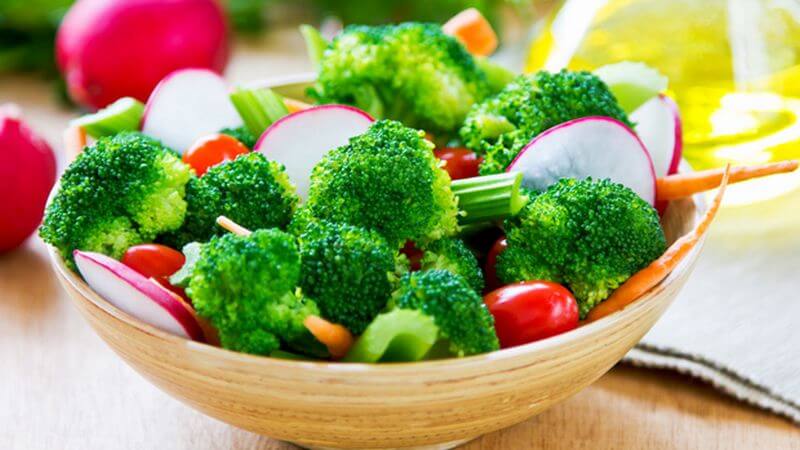
One of the most common mistakes I see “hardgainers” make is eating too many low-calorie foods.
And especially low-calorie foods that are also very filling, like fruits and vegetables that contain a large amount of fiber (apples, beans, raspberries, split peas, bananas, etc.).
Well, you certainly should eat a few servings of fruits and vegetables per day, but the more you eat beyond that, the harder it’s going to be to gain weight.
One of the reasons for this is satiety (fullness) is affected more by volume than calories.
For example, in a study conducted by scientists at Pennsylvania State University, researchers found that adding air to a milkshake to make it appear double the size (without changing its calories) reduced food intake at a subsequent meal by 12% and lowered reports of hunger.
Other research shows that even the perception of food volume affects satiety.
A study conducted by researchers at the University of Bristol found that the more fruit subjects believed was in a smoothie, the fuller it made them feel.
This is why many fruits and vegetables are often touted as great “weight loss foods.”
They don’t have any special inherent fat-burning properties, but they do provide a lot of volume for very little calories, which keeps you full and makes you less likely to overeat.
That’s obviously a boon when you’re cutting but a barricade when you’re bulking.
We should also talk about whole vs. refined grains.
You’ve probably heard that highly processed carbs like white bread, white rice, and white pasta should be avoided by all people under all circumstances because they make you fat.
This is nonsense.
First, individual foods can’t make you fat. Only overeating can.
That said, some foods increase the likelihood of overeating more than others. Highly processed grains are one of these foods, mainly due to appetite stimulation.
This is why it’s a good idea for the average overweight, sedentary person to limit their intake of refined grains. It will help prevent weight gain and decrease the risk of metabolic disease.
You’re not that person, though.
You not only could benefit from some appetite stimulation, you exercise regularly so your body has a much greater demand for energy (and carbs are primarily energetic).
You should also be lean if you’re trying to gain weight (and I explain why here), which further helps your body burn and utilize (and not store as fat) the carbs you eat.
And last but not least, a large percentage of your daily calories should be coming from wholesome foods, which means your diet as a whole will be nutritious despite the inclusion of foods that are less nourishing.
In reality, refined grains are going to be particularly useful for you because they are less filling than whole grains.
Thus, they can help you comfortably eat more food every day.
3. Eat More Calorie-Dense Foods
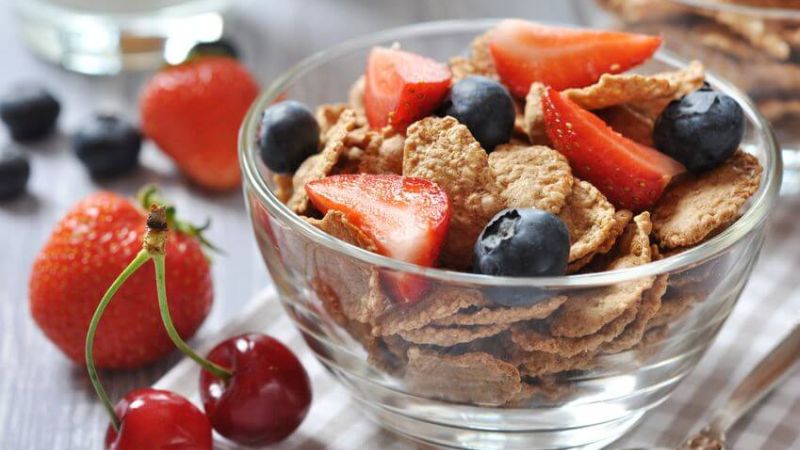
As you now know, food choices are a very important part of making your appetite work for and not against you when you’re trying to gain weight.
Eat too many filling, low-calorie foods and you’ll never be able to hit your daily targets.
Eat a lot of calorie-dense foods, though, and you might find it relatively easy.
Here are some of my favorite calorie-dense bulking foods:
- Whole-fat dairy (milk, cheese, butter, yogurt, etc.)
- Whole eggs
- Higher-fat cuts of meat (like ground beef, chicken thighs, skirt steak, NY strip, ribeye, etc.)
- Whole grain foods like bread, pancakes, pasta, rice, oatmeal (steel-cut oatmeal is particularly calorie-dense), etc.
- Refined grain foods like white rice, white pasta, and homemade baked goods made with all-purpose flour.
- Nuts and nut butters
- Granola and muesli
As you can see, I like to avoid low-fat and “diet” foods and stick mainly to higher-calorie, relatively-unprocessed fare.
(I’m not a big believer in “dirty bulking,” either, where you eat large amounts of sugar-laden and highly processed foods like chips, baked goods, ice cream, etc.)
Another good tip is to add sauces and condiments to meals when possible.
For example, if you’re going to eat yogurt, add two tablespoons of honey or maple syrup and you’ve increased the meal by about 130 calories. (Throw in 1/2 of a cup of granola and there’s another ~300 calories.)
You can spice up many chicken and beef dishes in particular with sauces like barbecue sauce (~50 calories per tablespoon), mayonnaise (~90 calories per tablespoon), sour cream (~25 calories per tablespoon), ranch dressing (~75 calories per tablespoon), etc.
Adding butter and/or oil (~100 calories per tablespoon) to foods that you cook is yet another easy way to increase caloric intake (and deliciousness!).
4. Drink Calories
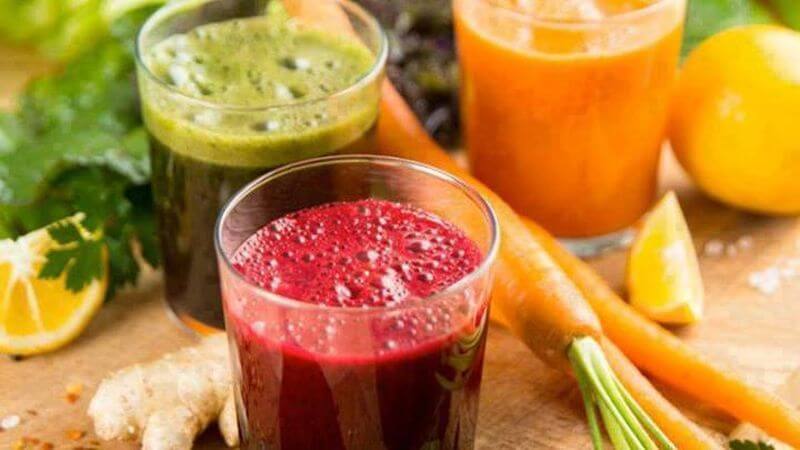
Here’s another example of advice that’s bad for the average person but beneficial for you.
The reason for this is caloric beverages, ranging from soda to sports and energy drinks to fruit juices, don’t trigger satiety like food.
You can drink 1,000 calories and be hungry an hour later, whereas eating 1,000 calories of food, including a good portion of protein and fiber, will probably keep you full for 5 to 6 hours.
Here’s a quote from researchers at Purdue University, who investigated the influence of meal timing and food form on daily energy intake:
“Based on the appetitive findings, consumption of an energy-yielding beverage either with a meal or as a snack poses a greater risk for promoting positive energy than macronutrient-matched semisolid or solid foods consumed at these times.”
That is, people that drink calories are much more likely to overeat than those that don’t.
This is why research shows a clear association between greater intakes of sugar-sweetened beverages and weight gain, in both adults and children.
Well, what’s poison to most people is meat to you.
You’re here to learn how to (comfortably and controllably) overeat and drinking calories is a tool you should have in your bag.
I don’t recommend you drink your calories indiscriminately, though.
Sugars–both those added to and naturally occurring in foods–aren’t as harmful as some people would have you believe, but eating too much of them is.
The World Health Organization recommends that we eat no more than 50 grams of free sugar per day and, ideally, 25 grams or less per day.
(“Free sugar” is defined as “sugars added to foods plus sugars naturally present in honey, syrups, and fruit juices.” This excludes sugars naturally present in fruits, vegetables, and dairy, which are processed differently by the body than free sugar.)
This recommendation is based on an extensive review of existing research on the association between free sugar intake and disease.
To put this in perspective, a can of Coke contains 33 grams of (free) sugar, a cup of orange juice contains (on average) 21 grams, and a tablespoon of honey contains 17 grams.
Now, we do need to keep in mind that these recommendations are for the average overweight person that moves very little and thus has little need for sugars.
You’re not that person, which means you have more wiggle room with your sugar intake.
Nevertheless, I think that taking that as a license to eat very large amounts of sugars every day is a mistake.
When bulking, I personally try to keep my total free sugar intake below 50 grams per day (and often eat quite a bit less).
You accomplish this by eating large amounts of high-carb, low-free-sugar foods like fruit, grains and starches like rice, wheat, oats, potato, and beans and watching your intake of free-sugar-rich foods like dried fruit, fruit juice, soda, candy, and the like.
So, when it comes to drinking calories, the key takeaway is twofold:
- Avoid beverages with added sugar.
Instead, I recommend that you stick with whole, rice, or almond milk and no-sugar-added fruit juice.
You can also use these liquids to make delicious protein smoothies.
- Don’t try to drink a large amount of your daily calories (think of caloric beverages as dietary supplements, not staples)
Most people find that simply adding 2 to 3 cups of whole milk or fruit juice to their daily meal plan is enough to get the needle moving.
5. Make Food That Tastes Good
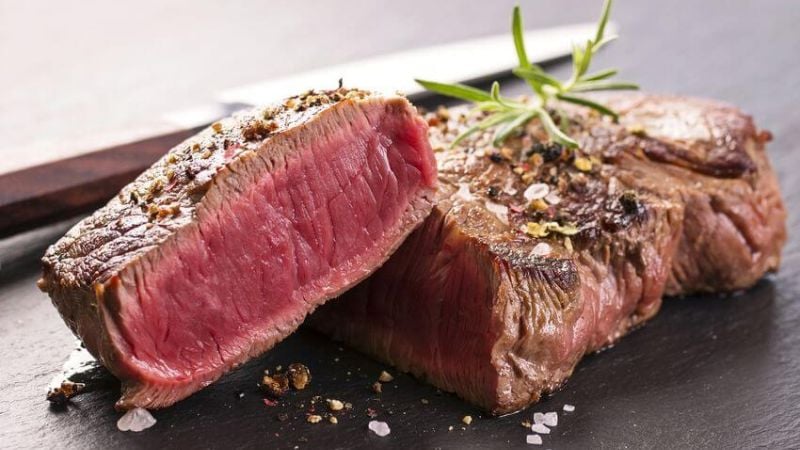
By now, you’ve come to terms with the fact that gaining weight requires eating a lot of food. More food than you’re comfortable eating, probably.
Well, if you’re a foul bachelor frog in the kitchen, you’re going to make a lot of bland or worse food that’s a chore to eat.
And when you realize that you’re going to have to slog through plates of animal fodder every day for many months, motivation (understandably) wanes.
This is why I learned to cook (well, learned to find and follow good recipes is more accurate).
It enables you to keep your calories fresh and appetizing and helps prevent the “food fatigue” that plagues so many bodybuilders and fitness folk.
What About Supplements?
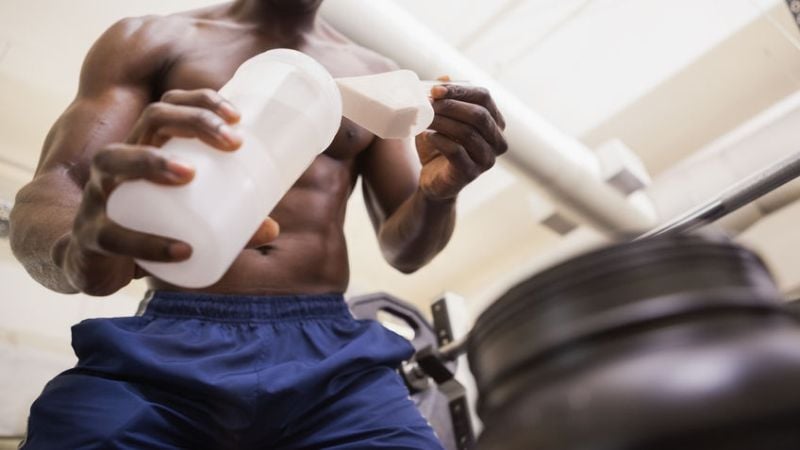
I saved this for last because, quite frankly, it’s far less important than proper diet and training.
You see, supplements don’t build great physiques–dedication to proper training and nutrition does.
Unfortunately, the workout supplement industry is plagued by pseudoscience, ridiculous hype, misleading advertising and endorsements, products full of junk ingredients, underdosing key ingredients, and many other shenanigans.
Most supplement companies produce cheap, junk products and try to dazzle you with ridiculous marketing claims, high-profile (and very expensive) endorsements, pseudo-scientific babble, fancy-sounding proprietary blends, and flashy packaging.
So, while workout supplements don’t play a vital role in building muscle and losing fat, and many are a complete waste of money…the right ones can help.
The truth of the matter is there are safe, natural substances that have been scientifically proven to deliver benefits such as increased strength, muscle endurance and growth, fat loss, and more.
As a part of my work, it’s been my job to know what these substances are, and find products with them that I can use myself and recommend to others.
Finding high-quality, effective, and fairly priced products has always been a struggle, though.
That’s why I took matters into my own hands and decided to create my own supplements. And not just another line of “me too” supplements–the exact formulations I myself have always wanted and wished others would create.
I won’t go into a whole spiel here though. If you want to learn more about my supplement line, check this out.
For the purpose of this article, let’s just quickly review the supplements that are going to help you get the most out of your back (and other) workouts.
Creatine
Creatine is a substance found naturally in the body and in foods like red meat. It’s perhaps the most researched molecule in the world of sport supplements–the subject of hundreds of studies–and the consensus is very clear:
Supplementation with creatine helps…
You may have heard that creatine is bad for your kidneys, but these claims have been categorically and repeatedly disproven. In healthy subjects, creatine has been shown to have no harmful side effects, in both short- or long-term usage. People with kidney disease are not advised to supplement with creatine, however.
If you have healthy kidneys, I highly recommend that you supplement with creatine. It’s safe, cheap, and effective.
In terms of specific products, I use my own, of course, which is called RECHARGE.
RECHARGE is 100% naturally sweetened and flavored and each serving contains:
- 5 grams of creatine monohydrate
- 2100 milligrams of L-carnitine L-tartrate
- 10.8 milligrams of corosolic acid
This gives you the proven strength, size, and recovery benefits of creatine monohydrate plus the muscle repair and insulin sensitivity benefits of L-carnitine L-tartrate and corosolic acid.
Protein Powder
You don’t need protein supplements to gain muscle, but, considering how much protein you need to eat every day to maximize muscle growth, getting all your protein from whole food can be impractical.
That’s the main reason I created (and use) a whey protein supplement. (There’s also evidence that whey protein is particularly good for your post-workout nutrition.)
WHEY+ is 100% naturally sweetened and flavored whey isolate that is made from milk sourced from small dairy farms in Ireland, which are known for their exceptionally high-quality dairy.
I can confidently say that this is the creamiest, tastiest, healthiest all-natural whey protein powder you can find.
Pre-Workout Drink
There’s no question that a pre-workout supplement can get you fired up to get to work in the gym. There are downsides and potential risks, however.
Many pre-workout drinks are stuffed full of ineffective ingredients and/or minuscule dosages of otherwise good ingredients, making them little more than a few cheap stimulants with some “pixie dust” sprinkled in to make for a pretty label and convincing ad copy.
Many others don’t even have stimulants going for them and are just complete duds.
Others still are downright dangerous, like USPLabs’ popular pre-workout “Jack3d,”which contained a powerful (and now banned) stimulant known as DMAA.
Even worse was the popular pre-workout supplement “Craze,” which contained a chemical similar to methamphetamine.
The reality is it’s very hard to find a pre-workout supplement that’s light on stimulants but heavy on natural, safe, performance-enhancing ingredients like beta-alanine, betaine, and citrulline.
And that’s why I made my own pre-workout supplement. It’s called PULSE and it contains 6 of the most effective performance-enhancing ingredients available:
- Caffeine. Caffeine is good for more than the energy boost. It also increases muscle endurance and strength.
- Beta-Alanine. Beta-alanine is a naturally occurring amino acid that reduces exercise-induced fatigue, improves anaerobic exercise capacity, and can accelerate muscle growth.
- Citrulline Malate. Citrulline is an amino acid that improves muscle endurance, relieves muscle soreness, and improves aerobic performance.
- Betaine. Betaine is a compound found in plants like beets that improves muscle endurance, increases strength, and increases human growth hormone and insulin-like growth factor 1 production in response to acute exercise.
- Ornithine. Ornithine is an amino acid found in high amounts in dairy and meat that reduces fatigue in prolonged exercise and promotes lipid oxidation (the burning of fat for energy as opposed to carbohydrate or glycogen).
- Theanine. Theanine is an amino acid found primarily in tea that reduces the effects of mental and physical stress, increases the production of nitric oxide, which improves blood flow, and improves alertness, focus, attention, memory, mental task performance, and mood.
And what you won’t find in PULSE is equally special:
- No artificial sweeteners or flavors..
- No artificial food dyes.
- No unnecessary fillers, carbohydrate powders, or junk ingredients.
The bottom line is if you want to know what a pre-workout is supposed to feel like…if you want to experience the type of energy rush and performance boost that only clinically effective dosages of scientifically validated ingredients can deliver…then you want to try PULSE.
The Bottom Line on Eating Enough Food to Gain Weight

Gaining muscle and weight is like most things health and fitness.
There aren’t any shortcuts or “hacks.” Just diligent application of the fundamentals with some commonsensical tweaks and calibrations.
So, if you’re having trouble gaining weight, here’s what you need to do:
- Accept that it entails eating more food than you would naturally and comfortably eat.
- Work out through calculation and trial and error how much food you need to eat to gain 0.5 to 1 (men)/0.25 to 0.5 (women) pounds per week.
- Play with meal timing and frequency and food and beverage choices until you’re able to eat this amount of food every day.
- Spice up your meal plans with new dishes as needed.
- Keep putting in the work every day.
If you do that, I promise you’ll be able to gain weight (and muscle) with ease.
What’s your take on how to eat enough food to gain weight? Have anything else to share? Let me know in the comments below!
+ Scientific References
- Vasanti S Malik, Matthias B Schulze, F. B. H. (n.d.). Intake of sugar-sweetened beverages and weight gain: a systematic review - PubMed. Retrieved July 15, 2020, from https://pubmed.ncbi.nlm.nih.gov/16895873/
- Mattes, R. D., & Campbell, W. W. (2009). Effects of Food Form and Timing of Ingestion on Appetite and Energy Intake in Lean Young Adults and in Young Adults with Obesity. Journal of the American Dietetic Association, 109(3), 430–437. https://doi.org/10.1016/j.jada.2008.11.031
- Holt, S. H. A., Brand-Miller, J. C., & Stitt, P. A. (2001). The effects of equal-energy portions of different breads on blood glucose levels, feelings of fullness and subsequent food intake. Journal of the American Dietetic Association, 101(7), 767–773. https://doi.org/10.1016/S0002-8223(01)00192-4
- Dyck, D. J., Heigenhauser, G. J. F., & Bruce, C. R. (2006). The role of adipokines as regulators of skeletal muscle fatty acid metabolism and insulin sensitivity. In Acta Physiologica (Vol. 186, Issue 1, pp. 5–16). Acta Physiol (Oxf). https://doi.org/10.1111/j.1748-1716.2005.01502.x
- Greenwood, D. C., Threapleton, D. E., Evans, C. E. L., Cleghorn, C. L., Nykjaer, C., Woodhead, C., & Burley, V. J. (2013). Glycemic index, glycemic load, carbohydrates, and type 2 diabetes: Systematic review and dose-response meta-analysis of prospective studies. Diabetes Care, 36(12), 4166–4171. https://doi.org/10.2337/dc13-0325
- https://pubmed.ncbi.nlm.nih.gov/18296292/. (n.d.). Carbohydrates--the good, the bad and the whole grain - PubMed. Retrieved July 15, 2020, from https://pubmed.ncbi.nlm.nih.gov/18296292/
- Abete, I., Astrup, A., Martínez, J. A., Thorsdottir, I., & Zulet, M. A. (2010). Obesity and the metabolic syndrome: Role of different dietary macronutrient distribution patterns and specific nutritional components on weight loss and maintenance. In Nutrition Reviews (Vol. 68, Issue 4, pp. 214–231). Nutr Rev. https://doi.org/10.1111/j.1753-4887.2010.00280.x
- Brunstrom, J. M., Brown, S., Hinton, E. C., Rogers, P. J., & Fay, S. H. (2011). “Expected satiety” changes hunger and fullness in the inter-meal interval. Appetite, 56(2), 310–315. https://doi.org/10.1016/j.appet.2011.01.002
- B J Rolls, E A Bell, B. A. W. (n.d.). Increasing the volume of a food by incorporating air affects satiety in men - PubMed. Retrieved July 15, 2020, from https://pubmed.ncbi.nlm.nih.gov/10919928/
- Rolls, B. J., Drewnowski, A., & Ledikwe, J. H. (2005). Changing the energy density of the diet as a strategy for weight management. Journal of the American Dietetic Association, 105(5 SUPPL.), 98–103. https://doi.org/10.1016/j.jada.2005.02.033
- Cameron, J. D., Cyr, M. J., & Doucet, É. (2010). Increased meal frequency does not promote greater weight loss in subjects who were prescribed an 8-week equi-energetic energy-restricted diet. British Journal of Nutrition, 103(8), 1098–1101. https://doi.org/10.1017/S0007114509992984Cameron, J. D., Cyr, M. J., & Doucet, É. (2010). Increased meal frequency does not promote greater weight loss in subjects who were prescribed an 8-week equi-energetic energy-restricted diet. British Journal of Nutrition, 103(8), 1098–1101. https://doi.org/10.1017/S0007114509992984
- Tomiyama, A. J., Mann, T., Vinas, D., Hunger, J. M., Dejager, J., & Taylor, S. E. (2010). Low calorie dieting increases cortisol. Psychosomatic Medicine, 72(4), 357–364. https://doi.org/10.1097/PSY.0b013e3181d9523c
- Cangemi, R., Friedmann, A. J., Holloszy, J. O., & Fontana, L. (2010). Long-term effects of calorie restriction on serum sex-hormone concentrations in men. Aging Cell, 9(2), 236–242. https://doi.org/10.1111/j.1474-9726.2010.00553.x
- Zito, C. I., Qin, H., Blenis, J., & Bennett, A. M. (2007). SHP-2 regulates cell growth by controlling the mTOR/S6 kinase 1 pathway. Journal of Biological Chemistry, 282(10), 6946–6953. https://doi.org/10.1074/jbc.M608338200
